December 2020
|
| |
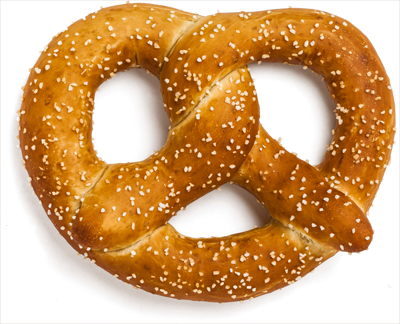
Advent is For Repentance
The days before Christmas –
the Season of Advent –
are for repenting.
That’s why half of the Sundays in Advent are devoted to
John the Baptist. Changing the color of Advent from
purple to blue, to shift from penance to hope, couldn’t
remove John the Baptist. So don’t get out the peanut
brittle too soon. Keep some good ol’ twisted pretzels
around until the end of the month. They have long stood
for repentance
Along with those pretzels, dwell on these words from
Martin Luther, which help us understand why our Lord
Jesus insisted that if we don’t repent, we’ll perish
(Luke 13:5). First, “to repent is to feel seriously
God’s wrath because of sin, so that the sinner is
troubled in his heart and plagued by a desire for
salvation and for the mercy of God” (Luther’s
Works
5:154). So keep that good plague in mind. And second,
“true repentance is not contrition alone; it is also
faith, which takes hold of the promise, lest the
penitent perish” (LW
7:257). So building up has to follow all tearing down,
otherwise repentance isn’t Biblical.
Pastor Marshall
|
|
| |
|
|
PRESIDENT'S REPORT....by
Cary Natiello
Dear friends in Christ,
How are you holding up?
I don’t know about you, but it’s pretty hard to
crack a smile during these troubled times.
I can’t help but ask myself, “MY GOD, haven’t we
had enough already?”
As pastor Marshall said in his November 8th
sermon, “[I]…long for those good days – those happy days
– because they make life sweet. Laughing together, and
having good times with family and friends, makes life
enjoyable…”
I know I can’t give into despair as I long for the good
old days.
Here are some words from Pastor Marshall’s last couple
sermons that helped me to keep things in proper
perspective:
|
Don’t think that what’s happening now is more important
than what will happen when the world ends (John
5:28–29, 2 Peter 3:10).
Do not love the world or the things in the
world. If anyone loves the world, love for the
Father is not in him. (1 John 2:15).
Don’t be so enamored with what’s going on in the
world around you that you forget God (Colossians
3:2, Philippians 3:8).
So believe in Christ, for he says to us
all―“unhesitatingly set your foot on Me [for] I
will be the Bridge to carry you across [into
heaven, so] wager boldly on Me, go cheerfully
and happily, and die in My name” (LW
24:42).
For Christ is “the blessed and joyful redemption
from this vale of misery and wretchedness” (LW
35:316).
That it is by the Father’s sure knowledge
and will that we suffer [and so] we ought to
rejoice and to embrace the will of the Father
with a joyful heart.
Indeed, we should take all of our
tribulations and swallow them up and drown them
like a spark in the sea of God’s infinite love
and care for us” (LW 67:109).
|
While I believe it is not ok to turn my back on the
issues we face today, I also need to remember that what
ultimately goes on in this world should not occupy all
my time and energy.
If I lose sight of God, His mercy, gifts, and the
love of Christ, it is easy for me to become depressed
and feel helpless and hopeless.
I am so thankful that Pastor Marshall dedicates
so much time to his weekly sermons for us.
Thanks be to God, Amen.
So, what else is happening
you ask?
We continue to monitor the
spread of COVID-19 and assess our reopening criteria.
As I am sure you are not surprised, the uptrend
in COVID-19 cases continues to mean we will not have
indoor worship services anytime soon, including
Christmas.
Nonetheless, the council is continuing its work on
establishing guidelines for indoor services.
Even after a vaccine becomes available for
distribution, we will still need to follow safe opening
guidelines well into 2021.
At the end of September, we
had $66,500 in the checking and at the end of October it
was down to $61,300.
Our weekly envelope giving continues to be less
than the first half of the year.
This is slowly eroding our solid financial
footing giving us pause as we head into establishing our
2021 budget.
While we still have a good reserve of funds in
our checking, if you are behind in your pledge or
giving, please do the best you can to try to catch up.
Thank you to everyone who has met or exceeded
their pledge, and thank you all for your continued
support to maintain our beautiful church.
Saint Nicholas Faire will
have happened by the time you receive the December issue
of The Messenger.
I’ll pray that our first virtual fund raising
event goes smoothly.
Many thanks to Scott and Valerie Schorn for
managing the event again this year!
Merry Christmas!
Let’s all pray that 2021 will be a better year.
Stay safe and may God’s Blessings be
with you.

|
|
|
|
|
|

God,
Whose Giving Knows No Ending
These words begin Hymn 408.
Each phrase of this hymn is a reminder that all
that we have and experience are gifts from our Creator,
and are ours on loan to share with the world in which we
live.
Nature, Jesus’ sacrifice for us, our skills and time,
our health and freedom, our daily labor, our talents,
our treasures and riches, are given to us to help us
serve others – our family, church, communities, our
world.
These are different and difficult times of
uncertainty, racial unrest, political confusion, and
personal sacrifice for the greater good of our
neighbors, far and near, due to the pandemic.
But our role is to rejoice and be grateful, and
to stay faithful and engaged even when that is daunting
to do. St.
Paul said many times in his writings that we are to
always rejoice in the Lord.
And some of those times he was sitting in prison
for proclaiming the Gospel of Jesus Christ. So our job
is to follow the example of all those faithful
Christians who have gone before us, from Jesus to the
Saints, the Church Fathers, and everyday people like
ourselves.
“Keep on, keepin’ on” as the old gospel songs encourage,
is the posture of the devoted and faithful.
And in the final verse of Hymn 408, our prayer
can be…..
Open wide our hands in
sharing,
As we heed Christ’s
ageless call,
Healing, teaching, and
reclaiming,
Serving You by loving
all.
(P.S.
Our contributions to church are running
consistently between $2,000 and 3,000 behind our monthly
budget needs.
Can each of us give a little extra to make up the
shortfall??? Treasure,
too, you have entrusted…. ours to use…..
to spread the Gospel Word [Hymn 408, verse
3]).
─Larraine King, Church Council
|
|
|
|
|
|
Our Thanks!
To Scott and Valerie Schorn
And team for all
the work they did to organize and put on the
Saint Nicholas Faire.
Once again it was an impressive event raising much
needed funds to support our local West Seattle Food Bank
and Helpline.

|
|
|
|
|
|
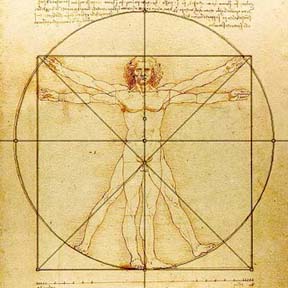
The Body
“I am fearfully and
wonderfully made.”
(Psalm 139:14)
“You
don’t know how the body is formed in the mother’s womb.”
(Ecclesiastes 11:5)
Skin
“Our
skin is our largest organ, and possibly the most
versatile. It keeps our insides in and bad things out.
It cushions blows. It gives us our sense of touch,
bringing us pleasure and warmth and pain and nearly
everything else that makes us vital…. It looks after
us…. It is thinnest on the eyelids (just one-thousandth
of an inch thick) and thickest on the heels of our hands
and feet…. The outermost surface of the epidermis… is
made up entirely of dead cells. It is an arresting
thought that all that makes you lovely is deceased.
Where body meets air, we are all cadavers. These outer
skin cells are replaced every month…. Run a finger along
a dusty shelf, and you are in large part clearing a path
through fragments of your former self. Silently and
remorselessly we turn to dust [Genesis 3:19]… We each
trail behind us about a pound of dust every year….
Nobody knows for sure how many holes you have in your
skin, but you are pretty seriously perforated…. If you
sink a spade into gravel or sand, you can feel the
difference between them even though all you are touching
is the spade. Curiously, we don’t have any receptors for
wetness…. [And] the brain doesn’t just tell you how
something feels, but how it
ought to
feel. That’s why the caress of a lover feels wonderful,
but the same touch by a stranger would feel creepy or
horrible. It’s also why it is hard to tickle yourself.”
[Bill Bryson,
The Body: A Guide
to Occupants (2019) pp. 11, 12, 13, 14.]
|
|
|
|
|
|
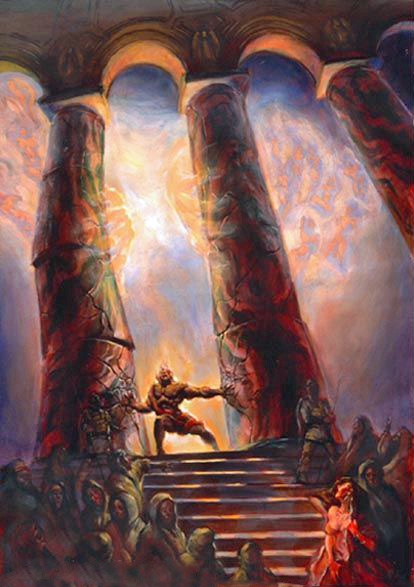
Luther
on Samson
By Pastor Marshall
Samson’s troubled life ends in spectacular victory –
destroying the Philistine temple (Judge 16:23), and
killing “at his death… more than those whom he had slain
during his life” (Judge 16:30). Luther rejoices in this.
“I hope,” he exclaims, “that it also happens to me that
I, like Samson, bring more misfortune with my death than
with my life. For Christ’s death, too, did more than his
life (John 12:24)” (Luther’s
Works 39:135). He agrees with the church father,
Caesarius of Arles (470–543), who saw in Samson’s end an
example that should “fit every servant of Christ” (Ancient
Christian Commentary on Scripture, vol. OT IV, 2005,
p. 167). Others, however, see in Samson’s end the bad
example of the “first suicide-killer” which now plagues
our world (D. Grossman,
Lion’s Honey: The
Myth of Samson, 2005, p. 143). All they see are “the
perils of strength for man or nation, unless it is
humbled, mellowed, and controlled by the direction of a
wise and loving God” (P. Elliott,
The Book of
Judges, 1953, p. 798). But don’t forget that it was
God himself (Judges 16:22, 28) who put Samson up to this
– even though it seems “forbidden by divine law” (T.
Butler, Judges,
2009, p. 358)!
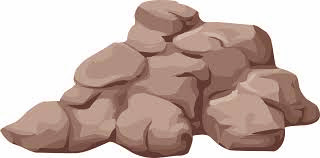 
|
|
|
|
|
|

Philippians
The Apostle Saint Paul
“You’re children… in the midst of
a crooked and perverse generation.”
(2:15)
by Pastor Marshall
Martin
Luther believed that the Bible was hated for speaking
“so disparagingly… of the world” – and taking “in the
entire world in one bite” as an evil place (Luther’s
Works 23:319). He thought the world was like a “sow
[that] lies in the mire or manure, rests and snores and
thinks only of where there is slop and swill, knows
nothing of death, fears no hell, looks forward to no
heaven, and hopes for no future life; slop and swill are
its heaven instead” (LW
57:27). “In the meantime… Christians serve as the legs,”
he thought, “that bear the entire world. For this
service the world rewards them by despising them,
oppressing them, forcing them into mire and filth,
disgracing them, reviling them, condemning them, yes, by
chasing them out of the world…. [So] we are now obliged
to suffer such filth and stench from [the world] as do
the legs that carry the paunch and the reeking belly” (LW
24:82–83). Indeed, it is “really disgraceful the way the
world carries on: it may be pious or it may be wicked,
but either way it is worthless…. [It] does not know and
honor the God who so richly and boundlessly blesses it;
much less does it thank and praise Him” (LW
21:134, 14:112). And by calling our world “perverse and
crooked,” this Philippians verse also maligns the world
– confirming that we’re dwelling “in the midst of Sodom
and Gomorrah and Babylon” (LW
36:305). It ignores all qualifications to the contrary.
Even so, the church is “still the church,” because it
knows how to “rule in the midst of… foes” – and “convert
other nations,” by “being lights in the world among an
evil and crooked generation” (LW
26:24, 29:57, 76:391). And it is not to worry, if in
these adverse times it must “steal in the name of the
Lord,” in order to keep advancing “the teaching and
study of the Word” (LW
6:31). And that’s because if God’s word doesn’t prevail
in such an evil and wicked place, then there only will
be “furious and raging monsters everywhere” (LW
49:179). Then only “many teach, but few fight” (LW
29:30). And because of this wicked world, we’ll know why
– and consequently won’t be “offended by… the small
number of… believers” (LW
17:312). In fact, we’ll even act as though we don’t “see
or know the hostile and ungrateful scorners of God’s
Word” (LW
60:15).
This
verse from Philippians therefore serves us as a
“warning” not to be positive about our world (Fred
Craddock,
Philippians, 1985, p. 46). Indeed, in every
generation “those who view the world from God’s
perspective have reason for alarm” (Bonnie B. Thurston,
Philippians,
2009, p. 95). And so this verse calls for “an
irrevocable break with certain concrete ways of life
common in the world” (John Reumann,
Philippians,
2008, p. 412). Those ways include “wealth without work;
pleasure without conscience; knowledge without
character; commerce without morality; science without
humanity; worship without sacrifice; politics without
principle” (George Hunsinger,
Philippians,
2020, p. 79n.128). In contrast we should be positive
about the light of Christ shining in believers. “For the
stars shine in the night, they come to light more
splendidly. But when it’s light they don’t come to light
in the same way. So you too, when among crooked people
you remain upright, you shine more” (John Chrysostom,
Homilies on
Philippians, trans. P. Allen, 2013, p. 183). But we
have to be careful here. This is not “the Pharisaic
ideal of being better than the wicked world…. It is in
the struggle against themselves that [Christians] fight
the struggle for existence. Pharisaism is nothing new in
the world, no light in the darkness. That [light]
appears where men [refuse to] join in the game of
self-esteem, where man as such is assailed and called
[into] question. Christians are such men” (Karl Barth,
Epistle to the
Philippians, 40th Anniversary Edition, trans. J. W.
Leitch, 2002, pp. 76–77).
|
|
|
|
|
|
ANNOUNCEMENTS:
Compass Housing
Alliance
is in need of new or clean lightly used clothing or new
Christmas gift clothing items (XL) for their housing
centers for both men and women. Please make arrangements
with the office for drop off options.
The items will be delivered before Sunday,
December 13th.
FOOD BANK COLLECTION
suggested donation for December is holiday foods.
We are still collecting food for the West Seattle
Food Bank.
Please make arrangements with the office for drop off
options.
CHRISTMAS CAROLING PARTY:
Saturday, December 26th, Saint Stephen Deacon & Martyr,
a virtual caroling experience will be available by
email. If
you are interested in receiving this option please let
the office know.
SACRAMENT OF PENANCE:
Because
of Coronavirus concerns, the Sacrament of Penance is now
offered on Zoom.
This brief liturgy enables people – one at a time
– to confess their sin and receive the blessed assurance
of forgiveness.
Email or call the office and talk to Pastor
Marshall to set up a time for Penance.
PASTOR MARSHALL’s
next four week class on the Koran starts on Monday,
January 4th.
Call the office to register for the class.
2021 FLOWER CHART:
The new chart for 2021 will be reserved until we
have a clear message as to when our worship services and
facility can be reopened.
JOHNSON CN:
Our thanks to Ben Johnson and Johnson CN for the
financial and technical support donated to the church
office. It
is very much appreciated.

|
|
|
|
|
|
Job 6.4
Monthly Home Bible Study,
December 2020, Number
334
The Reverend Ronald F. Marshall
Along with our other regular study of Scripture, let us
join as a congregation in this home study. We will
study alone
then talk informally about the assigned verses together
as we have opportunity. In this way we can “gather
together
around the Word” even though physically we will not be
getting together (Acts 13.44). (This study uses the RSV
translation.)
We need to support each other in this difficult
project. In 1851 Kierkegaard wrote that the Bible is “an
extremely dangerous book.... [because] it is an
imperious book... – it takes the whole man and may
suddenly and radically change... life on a prodigious
scale” (For
Self-Examination). And in 1967 Thomas Merton wrote
that “we all instinctively know that it is dangerous to
become involved in the Bible” (Opening
the Bible). Indeed this word “kills” us (Hosea 6.5)
because we are “a rebellious people” (Isaiah 30.9)! As
Lutherans, however, we are still to “abide in the womb
of the Word” (Luther's
Works 17.93) by constantly “ruminating on the Word”
(LW 30.219)
so that we may “become like the Word” (LW
29.155) by thinking “in the way Scripture does” (LW
25.261). Before you study then, pray: “Blessed Lord, who
caused all Holy Scriptures to be written for our
learning: Grant us so to hear them, read, mark, learn
and inwardly digest them, that we may embrace and ever
hold fast the blessed hope of everlasting life, which
you have given us in Our Savior Jesus Christ. Amen”
(quoted in R. F. Marshall,
Making A New
World: How Lutherans Read the Bible, 2003, p. 12).
And don’t give up, for as Luther said, we “have in
Scripture enough to study for all eternity” (LW
75:422)!
Week I.
Read Job 6.4 noting the words
arrows,
poison and
terrors. What is Job referring to? On this read Job
2.7 noting the
loathsome sores. Why does Job describe these sores
in such a gruesome way? On this read Matthew 26.41 about
our weak flesh.
How do we see this weakness? Check out 2 Corinthians
12.7 noting the word
harass. Why
aren’t we able to endure this pain of harassment? Read 2
Corinthians 4.7 about people being
earthen vessels.
So we aren’t powerhouses. Our inherent weakness drains
our stamina. We aren’t mighty; we’re earthen. We aren’t
able to sustain ourselves unceasingly. Note the fear of
growing weary
in Galatians 6.9, 2 Thessalonians 3.13, and Hebrews
12.3. So the call to always abound in the works of the
Lord in 1 Corinthians 15.58 is an ideal that’s rarely
done. But doesn’t practice make perfect? On this read
Philippians 3.12 noting the phrase
not… perfect.
Why is that? Will it come eventually? Read Romans 1.25
about mistakenly
exchanging the
creature for
the Creator.
That would say no. Do you agree?
Week II.
Read again Job 6.4 noting this time the words
Almighty and
God. Does God really want to hurt us and Job? On
this read Job 2.6 noting how God puts Job into Satan’s
power. But it
is still Satan who inflicts Job with those sores. So why
does Job think God has done it? Why doesn’t he think
it’s a mystery – with the source of his misery unknown?
On this read Isaiah 45.7 noting the words
weal and
woe. Note
also wound
and heal in
Deuteronomy 32.39. And even in Job 1.21 note the words
gave and
taken. In all
three God is responsible for both. Why would God send or
allow woe to inflict us? On this read Leviticus 26.14 –
16 noting the words
but,
not,
hearken and
terror. So
punishment is one reason for the woe. What does Job
think of that? Read Job 9.15 noting the line
I am innocent,
and without cause
in Job 9.17. Job, then, would think any divine
punishment to be mistaken. Another reason for woe is in
Romans 5.4 – it builds
character.
But if Job was the
greatest man
around, as says Job 1.3, then he wouldn’t need any
character formation. Do you agree?
Week III.
Reread Job 6.4 noting again those words
Almighty and
God. Why is Job upset with what he thinks God is
doing to him? On this read Job 23.1–7 noting the words
case and
reason. He
thinks that if he could only explain his side to God, he
would agree with Job that he is suffering unjustifiably.
Because he hasn’t had that chance, he’s mad at God. But
does this take Isaiah 55.8–9 into account? There we
learn how vastly greater God is than we are. If that’s
so, then how could Job reason with God to change his
mind? They aren’t on the same level. What is his
recourse then? On this read Psalm 99.5 noting God’s
footstool.
Here reasoning is replaced with humiliation. And this is
what happens when God finally shows up in a storm and
says in Job 38.2 – “Who is this that darkens counsel by
words without knowledge?” Do you see in that an
invitation to Job to make his case against God? Why or
why not?
Week IV.
Read Job 6.4 one last time noting the same words
Almighty and
God. Is there
anything that Job can do to placate God so that his
fortunes and good health are restored? Complaining
didn’t work. Demanding a hearing didn’t either. In Job
42.10 his fortunes are restored – to even twice what
they were before. How did that happen? Job 42.10 says
that it was because he
prayed for his
friends. Why would that work? On this read Matthew
6.14–15 noting how the two uses of
forgive work
together. Does that explain Job’s good fortune? Or does
Job 42.6 and its words
despise and
repent add
anything important? On this read Luke 13.5 noting the
words repent
and perish.
Note also Job 40.4 and his confession
I am of small
account. What does that add? Does it refine
repentance so that it doesn’t end up in ruin as it did
with Judas in Matthew 27.3–5?
|
|
|
|
|
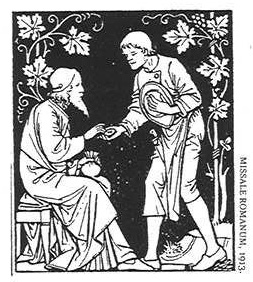
A Dialogue on Grit versus Gift
Do We Basically Earn What We Have?
Jane Harty:
Daniel Markovits begins his best-selling 2019 book The
Meritocracy Trap with these four little words about
American culture – “Merit is a sham.” His subtitle hints
at what is to come in this ground-breaking argument
against meritocracy: “How America’s Foundational Myth
Feeds Inequality, Dismantles the Middle Class, and Devours
the Elite.” Right away Markovits describes his two-fold
criticism of meritocracy, and of American culture in
general:
First, meritocracy transforms education into a rigorous
and intense contest to join the elite. It concentrates
training in the narrow, super-educated caste that wins
the competition for places and grades at the top schools
and universities. Second, meritocracy transforms work to
create the immensely demanding and enormously lucrative
jobs that sustain the elite. It fetishizes skill,
centering both industry and pay around a narrow caste of
superordinate (highest in status) workers” (p.
5). The result is income inequality in which
the top 1 percent capture about 20% of total income.
“Meritocracy makes economic inequality overall
dramatically worse today than in the past and shockingly
worse in America than in other rich countries (p.
15).
Question 1:
Does this sound like a good summary of the thesis of his
book, and do these twin criticisms of meritocracy ring
true to you?
Ron Marshall: Yes,
that’s a good summary. I would only add that Markovits
thinks that merit has boomeranged on us. It was first
thought to be “the handmaiden of equality of
opportunity” – allowing people in lower classes to work
their way up simply by dint of hard work and elbow
grease. But now it’s seen to stifle more than foster
“social mobility” (p. xiv). And as for this thesis being
true or not, I think it’s true that luck matters more
than labor; gift more than grit; chance more than
calculations. One could never become a public school
teacher without graduating from college, but that alone
doesn’t give you a good job when you start looking for
one. Training is the necessary first step; but it’s not
enough to find rewarding work. For that, a big dose of
luck is needed. And that you can’t earn in school. Luck
is wild – not tame. It blows like the wind. We’d love to
learn how to harness it, but all our efforts have
failed. Martin Luther thought luck was out of our
control, in the way that divine grace is (Luther’s Works 17:265,
19:61, 41:53). Wayne E. Oates has developed this theme
in his 1995 book, Luck: A Secular Faith. Indeed,
Markovits even argues that “success demands a
single-minded willingness to sacrifice in the service of
ambition and requires luck even then” (p. 34). Luther
develops this further stating that “no man’s plans have
ever been straightforwardly realized, but for everyone
things have turned out differently from what he thought
they would be” (LW 33:41). So luck and life go
together. For Luther then, “all merit is abolished” (LW 76:319).
This is like Markovits opening sentence, “Merit is a
sham.” Luther knew that knowing that we’re not in
control of our lives is “an extreme trial” for us.
Seeing our lives as a hunk of clay being formed however
the potter wishes (Isaiah 41:25, Jeremiah 18:4, Romans
9:21), “demonstrates how insignificant” we are (LW 17:128).
That means we are beholden to powers out of our control
– whether we like it or not. That’s the truth Markovits
builds on.
Jane: Markovits
cites the most extreme examples of the shift in income
levels since the 1960s: CEOs who were paid 20 times the
income of a production worker then, are paid 300 times
as much today. Medical specialists (e.g. cardiologists)
earned 4 times that of a nurse then, and are paid 7
times more now. Lawyers at elite law firms were paid 5
times what a secretary made then, and 40 times more now.
The most dramatic change is in finance (e.g. Wall
Street): the Chase Manhattan Bank Chairman made 50 times
that of a teller in 1969, today it is over 1,000 times!
These huge increases are driven by “merit” –
performance-related pay (p. 18). And this heightened
economic performance is achieved because of elite (and
very expensive) Ivy League educations, starting in
pre-school. For example, 5 hours of homework every night
in high school is a given (p. 32). Wealthy parents
invest heavily in their children’s rigorous training to
continue the upward spiral of familial wealth.
A fair question would be: What’s the harm if the middle
class has enough? Markovits reminds us that middle class
jobs are disappearing, and that as the meritocrats are
paid large salaries for more and more work themselves,
mid-skilled manufacturing, retail and middle-management
jobs have gone away. Not only has the middle class lost
jobs, but their pay has stagnated, and those workers are
told that their work is no longer needed, adding insult
to injury. “Receding opportunity saps energy and
optimism, and enforced idleness draws contempt, invites
indolence, and nurtures frustration and anger…. The
two-pronged meritocratic assault on income and on status
unravels the middle class” (p. 30). “The idleness that
the meritocracy trap imposes on an economically
superfluous middle class has exacted over a million
‘deaths of despair’ over the past decade due to
suicides, overdoses of opioids and alcohol” (p.31).
Not only is the middle class demoralized, but the
meritocrats are devoured by their work (p. 38) – “17
hours a day, seven days a week” for typical investment
bankers (p. 10). High status and high income work is not
“an opportunity for self-expression or
self-actualization,” and is focused in “a narrowly
restricted class of jobs…finance, management, law, and
medicine” (p. 39). As children and future
wealth-producers, their educations “are dominated not by
experiments and play, but by accumulating the human
capital needed for getting admitted to an elite college
and, eventually, securing an elite job” (p. 38). What
kind of life is this?!
Question 2:
Does this description of the decline of American working
lives, both for the middle class and the wealthy, seem
right to you, or is it an exaggeration of the misery
felt in both economic classes? Do you think, as
Markovits does, that the middle class is in despair (p.
31) and that meritocrats’ inner lives are impoverished
(p. 285)?
Ron: Yes,
this highly competitive way of living and working
appears to be killing us with higher and higher rates of
suicide both while training in school and then in the
workplace. See Connie Goldsmith, Understanding
Suicide: A National Epidemic (2017). On this matter
Markovits writes movingly. “A former lawyer… tells of
the time when an associate in his firm passed out in the
middle of a conference room, and the remainder of her
team called an ambulance and, after the paramedics took
her away, returned straight to work. (The associate
eventually made partner, and observers treat her
collapse as contributing to the promotion, by
conspicuously demonstrating her commitment to her job.)
Bankers have in some cases worked themselves literally
to death, as when an analyst at Goldman Sachs was found
dead from a high fall after repeated troubles concerning
overwork. These accounts – right down to the gore –
betray a monomaniac commitment to using, even abusing,
oneself that is more familiar among elite athletes: they
are white-collar versions of the NFL player Ronnie
Lott’s decision to amputate a broken finger because
surgery and a cast would have forced him to miss a
crucial game” (p. 43).
Jane: Markovits
does propose solutions to The Meritocracy Trap. First
he calls for a “new politics” that “unmasks merit as a
sham” (p. 285). Second he also proposes economic
policies, in particular, reforming the federal payroll
tax to encourage employers to create middle-class jobs
(p. 281). Third, Markovits promotes “open and inclusive
education [which] would create a broader and less
extravagant elite” (p. 283). In other words, allow more
students, especially lower-income students in (which
would mean hiring more teachers, not less), reduce the
dehumanizing competition for admission, and subsidize
their costs. Finally, he describes the benefits of a
more equal society: “The elite can reclaim its freedom
and leisure in exchange for a reduction of income and
status that it can easily afford… At the same time, the
middle class can get relief from enforced idleness, and
renew its income and status, in exchange for letting go
of resentments that anyway provide no satisfaction.” (p.
286)
Question 3:
Do these solutions seem possible to you? How do you get
people to share work and income?
Ron: This
looks like a good plan – even though it doesn’t seem
very likely to succeed. What’s good about it is the goal
– sharing with others. That’s a long-held social value –
providing charity for the poor and needy. But the
problem is how to get people to share. Two methods have
been tried. The most common one has been enlightened
self-interest. This one tries to get people to share by
showing them that they actually help themselves when
they share with others. Here the motivation is
selfishness (Ayn Rand, The Virtue of Selfishness,
1964). But more often than not, this method collapses
into self-interest alone – leaving the neighbor out. Our
needs are unending and tend to get in the way of helping
others. The other less well tried method is self-denial.
Here helping others is a sacrifice – nothing more. It
replaces selfishness (Søren Kierkegaard, For
Self-Examination, 1851). This method doesn’t have
the same problem of tripping over oneself. Its problem
is the old one of getting started by seeing that
something matters more than ourselves.
Question 4:
What did you like and dislike about this book? Do you
see a role for the church in promoting income equality
in order to serve the neighbor, or is this strictly a
secular issue?
Ron: This
book exposes the darkness (Ephesians 5:11) and calls us
to help our neighbors (Luke 10:37). Both of these are
Biblical themes. Indeed, we’re taught that “if anyone
has the world’s goods and sees his brother in need, yet
closes his heart against him, how does God’s love abide
in him?” (1 John 3:17). But there is a weakness in this
book too. It can’t figure out a successful way to get
people to help each other. According to the Bible –
until the world ends, and Christ returns in glory – we
remain in a perverted and crooked place (Philippians
2:15, Matthew 17:17). But until then, we still have to
make every effort to help others and expose the darkness
– all the while knowing that we won’t be able to make
much progress on either of these. Luther thought
obedience required this of us (LW 52:218). But
perfection will constantly elude us (Philippians 3:12).
Even so, we’ll continue learning how to be content with
less than we’ve been hoping for, and still not give up
trying to always do better (Philippians 4:11).
Jane:
But it’s discouraging to think that we won’t be able to
make much progress, as you say. Surely if our actions
are in alignment with God’s because of our faith in
Christ, wouldn’t it be possible that God will graciously
allow those efforts to bear fruit? So perhaps the
operative word in your statement is “we.” With God,
however, all things are possible, even if not with us.
Can we agree on that?
Ron:
Yes, a better life is always possible, due to God’s
mercy. But the likelihood that enough people will start
sharing their work and income isn’t very good in this
fallen world, where we are to long for the better life
to come, after this world has been destroyed (Hebrews
9:28, 11:16, 2 Peter 3:10). Now when “hindered by the
malice of men, [we] should bear it patiently and not
cease [our good] works. Do not desert the battlefield
but stick it out” (LW 15:106). So, all that God
expects of us in tough times, is to “labor and commit
the outcome” to him (LW 15:153).
|
|
|
|
|
|
 PARISH PRAYERS
PARISH PRAYERS

Remember in prayer before God those whom He has made
your
brothers and sisters through baptism.
Leah Baker, Dorothy Ryder, Melanie Johnson, Sam & Nancy
Lawson, Marlis Ormiston, Connor Bisticas, Eileen & Dave
Nestoss, Kyra Stromberg, Diana Walker, Tabitha Anderson,
The Rev. Albin Fogelquist, The Rev. Howard Fosser,
The Rev. Kari Reiten, The Rev. Dave Monson, The
Rev. Dan Peterson, The Rev Alan Gardner, Eric Baxter,
Sheila Feichtner, Yuriko Nishimura, Leslie Hicks, Paul
Jensen, Lesa Christensen, Maggie & Glenn Willis, Evelyn,
Emily & Gordon Wilhelm, Karen Berg, Bjorg Hestevold,
Garrison Radcliffe, Antonio Ortez, Angel Lynn, Garrett
Metzler, Marv
Morris, Noel Curtis, Randy Vater, Doreen Phillips,
Richard Patishnock, Jeff Hancock, Yao Chu Chang, Marie
Magenta, Will Forrester, Wayne & Chris Korsmo, Holly &
Terrance Finan, Terry Fretheim, Heather Tutuska, Josie
West, Anthony Brisbane, Lori Aarstad, Ty Wick, Dan
Murphy, Pete Forsyth, Randy Lonborg.
Pray for our professional Health Care Providers:
Gina Allen, Janine Douglass, David Juhl, Dana Kahn, Dean
Riskedahl, Jane Collins
and
all those suffering from the coronavirus pandemic.
Pray for
the United States during this presidential election
year, and for unbelievers, the addicted, the sexually
abused and harassed, the homeless, the hungry and the
unemployed.
Pray for the shut-ins that the light of Christ
may give them joy:
Gregg & Jeannine Lingle, Bob & Mona Ayer, Joan
Olson, Bob Schorn, Doris Prescott, C.J. Christian,
Dorothy Ryder, Crystal Tudor, Nora Vanhala, Martin
Nygaard, Anelma Meeks.
Pray for our bishops Elizabeth Eaton and Shelley
Bryan Wee, our pastor Ronald Marshall, our choirmaster
Dean Hard and our cantor Andrew King, that they may be
strengthened in faith, love and the holy office to which
they have been called.
Pray that God would give us hearts which find joy
in service and in celebration of Stewardship.
Pray that God would work within you to become a
good steward of your time, your talents and finances.
Pray to strengthen the Stewardship of our
congregation in these same ways.
Pray for the hungry, ignored, abused, and
homeless this Advent & Christmas.
Pray for the mercy of God for these people, and
for all in Christ's church to see and help those who are
in distress.
Pray for our sister congregation:
El Camino de Emmaus in the Skagit Valley that God
may bless and strengthen their ministry.
Also, pray for our parish and it's ministry.
Pray that God will bless you through the lives of
the saints: Saint Thomas, Apostle; Saint Stephen, Deacon
and Martyr; Saint John, Apostle and Evangelist; and The
Holy Innocents, Martyrs.
|
|
A Treasury of Prayers
Merciful Father, we are surrounded by the needs of your
people, and we are overwhelmed by their suffering. Touch
our hearts. Help us to stand with your suffering
children and to advocate their needs to those who do not
care about them. In Jesus’ name I pray. Amen.
[For
All the Saints III:42, altered]
|
|
|